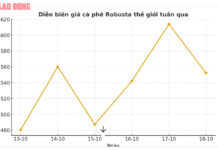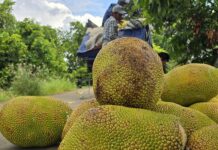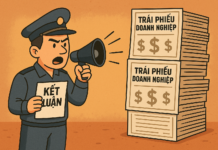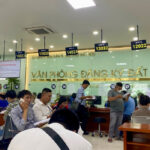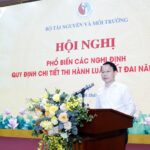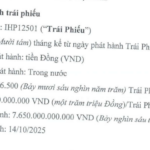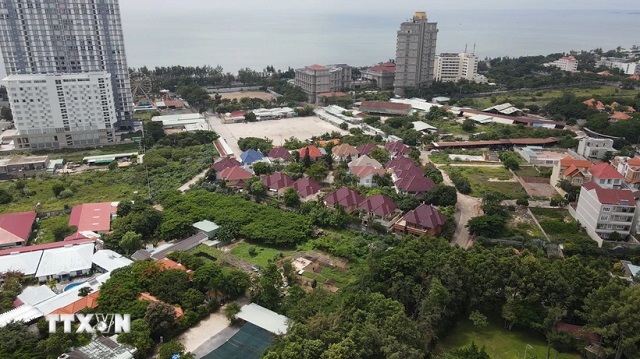
A vacant lot in Cho Vung Tau, Thang Tam Ward, Vung Tau City will be auctioned by the People’s Committee of Ba Ria – Vung Tau Province. Photo: Hoang Nhi – VNA
|
Experts have observed a growing trend in the market, with capital flow currently and expectedly “flooding” into auctioned land in urban and residential areas. This type of land is free from legal complications and disputes, making it a desirable option for investors.
These plots of land come with clear ownership and developed infrastructure, enabling owners to immediately construct properties for business or rental purposes, generating a steady monthly cash flow.
The President of the Vietnam Real Estate Brokers Association (VARS) cited the vibrant land auction activities in several localities, witnessing a surge in the number of applications.
Given the escalating prices and scarcity of apartment buildings, it is understandable that investors are seeking alternative avenues for their capital.
Mr. Dinh, a renowned analyst, predicts that investors will continue to target lots that have been subdivided and are located in developing areas associated with industry, trade, and services, boasting mature infrastructure and relatively affordable price levels.
Compared to the previous year, numerous localities have conducted land auctions for urban and new residential areas more frequently since the beginning of this year. These auctions have not only witnessed a surge in applications but also achieved successful bids that are 20% to 10 times higher than the starting prices.
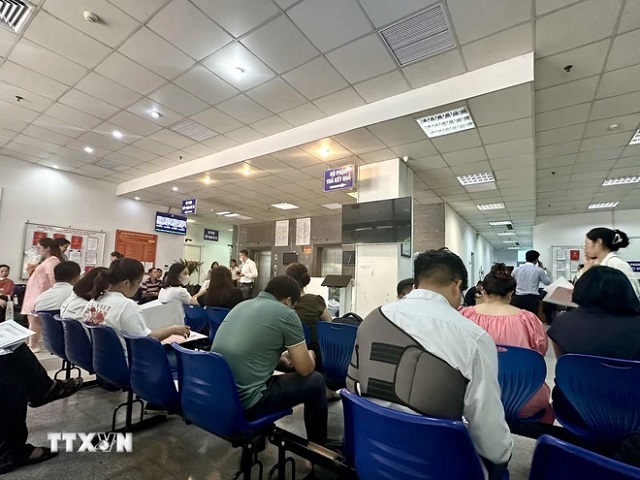
A land auction in Hoai Duc, Hanoi, with the highest successful bid exceeding VND 133.3 million per square meter and the lowest at VND 91.3 million per square meter. Photo: VNA
|
Dr. Dao Ngoc Nghiem, Vice President of the Vietnam Urban Planning and Development Association, commented that from a planning perspective, it is entirely normal and reasonable for localities to hold land auctions, attract investments, and offer incentives to investors. As the land fund in inner cities is dwindling, the idea of expanding satellite cities to reduce inner-city pressure has been conceived decades ago.
However, two recent land auctions in Hanoi startled the market as certain land lots were sold at prices 18 times higher than the starting bids. This unusual occurrence has prompted experts to warn about the potential repercussions of such “overpriced” land auctions.
With Hanoi having a scarcity of new projects and the supply of land plots expected to diminish further due to the 2023 Real Estate Business Law prohibiting land subdivision and plot sales in 105 cities and towns, auctioned land has become even more appealing to investors.
As capital is anticipated to continue flowing into auctioned land, Lawyer Truong Thanh Duc, Director of ANVI Law Firm and Arbitrator of the Vietnam International Arbitration Center, suggested the necessity of technical adjustments to manage this situation effectively and prevent any adverse societal impacts.
From an economic standpoint, land auctions with extremely high prices will make it challenging for citizens to access land and housing. The economy may suffer slow growth, and the money invested in land may not reach its full potential. Additionally, there could be significant challenges in managing and enforcing land-related policies and laws.
The 2024 Land Law, which came into effect on August 1, 2024, could be influenced by the continuous land auctions and escalating winning bids, potentially establishing a new benchmark for land prices in these localities.
According to the 2024 Land Law, provinces and cities are required to construct new land price frameworks that align closely with market prices annually.
If the auctioned land prices are used as a reference for creating these new frameworks, it could inadvertently set extremely high land values, far exceeding the reality in these areas. Consequently, this price surge could hinder the implementation of land policies, particularly regarding land compensation and resettlement during infrastructure development or business attraction initiatives.
Therefore, the state’s intervention in regulating the real estate market may encounter obstacles. Building land price frameworks based on such data could lead to a rapid and unsustainable increase in real estate values.
Sharing a similar viewpoint, Mr. Dao Ngoc Nghiem emphasized that while high auction prices positively contribute to increased local budget revenues, there are potential risks to consider. In Hanoi and several other provinces and cities, numerous plots of land, villas, and even entire urban areas have been left abandoned by land speculators, resulting in wasted land resources and disorderly local planning.
The auctioned land price may not reflect the true value, but it sets a new standard for the surrounding area, influencing local residents to demand higher prices for their land. Consequently, the locality may face challenges in infrastructure development or attracting businesses due to complicated compensation and resettlement processes during land reclamation.
In conclusion, attracting capital into auctioned land is a positive step towards increasing budget revenues and aligning with market trends. However, transparency and stringent measures are crucial to prevent any adverse effects on the real estate market.
“Addressing the Backlog: Streamlining the Process for 9,000 Pending Land Price Adjustment Cases in Ho Chi Minh City”
At a recent meeting convened by the Ministry of Natural Resources and Environment, delegates unanimously agreed to address the nearly 9,000 pending land-related cases in Ho Chi Minh City due to the absence of an adjusted pricing framework.
“Auction Bidding Results in Higher Prices Than Reserve Prices”
Through our investigations, it has been revealed that the winning bid prices are significantly higher than the reserve prices. This phenomenon can be attributed to the overall upward trend in the real estate market, which is currently on a path to recovery. The land-use rights auction took place at a unique juncture, between the phasing out of the 2013 Land Law and the introduction of the 2024 Land Law.
Sure, I can assist with that.
“Minister of Natural Resources and Environment, Do Duc Duy: ‘The 2024 Land Law will contribute to the perfection of the institution.’”
The new Land Law of 2024, as shared by Minister of Natural Resources and Environment Do Duc Duy, will introduce groundbreaking changes. These innovative provisions will significantly impact people’s lives, marking a pivotal step towards the government’s goal of reforming and perfecting the nation’s institutions and policies.



